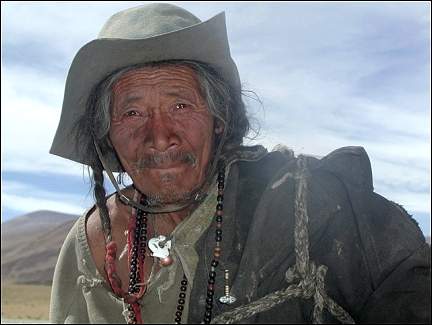CHINA! And the rest of Asia!
 | ||
| Jay Chou - Way cool Taiwanese pop/rock/R&B superstar |
The incredible popularity of a few pop superstars in Asia, combined with what seems to be a pan-Asian love for karaoke (notice the pinyin lyrics in the video), takes erhu pop straight into the Tibetan mainstream. Both of the Tibetan weddings in Mantras & Misdemeanors, Wednesday's annotated source, include at least a little Asian pop. I'm not sure how widespread the love for Asian pop is in India. It is interesting, and will be a subject of further inquiry, that deep fear/discomfort/hatred/[insert negative emotion here] that one would expect from Tibetans towards the Chinese doesn't seem to reduce their ability to enjoy music from the east. The Chinese government's efforts to dilute Tibetan culture may be working, or it may be that most Tibetans are above hating a people simply because they don't agree with their government. The latter is the vibe I've been getting most.
And, finally, back up north to the homeland:
TIBET!
There is a constant influx of Tibetan refugees, fresh over the Himalayas. One estimate says that about 3000 Tibetans escaped per year in the 90s, most into Nepal then on to India. This ensures a continual influx of Tibetan culture straight from the homeland to the camps.
Most interesting to me so far, from the Tibetan folk music side of things, has been shepherd song. Many societies with a history of pastoral emphasis have beautiful songs, inspired by long days in the middle of nowhere with little company except the flock. Again using the weddings from Mantras & Misdemeanors as examples, the young men were quick to take the stage to sing the nomad songs of their homelands, with vigor and nostalgia.
"They stand in front of the crowd, strong and happy, and sing beautiful nomad songs, their voices undulating over high calls emanating from deep in their throats to low languid notes. One after the other Tibetans get up and take the bottle to sing; sometimes alone closing their eyes, sometimes spontaneously joined in by others swaying happily in their seats. Just when I think there is no one left, someone else will get up and launch into beautiful, unabashed nomadic wailing." p. 110, Vanessa Walker
A similar scene occurs about 150 pages later, at Vanessa's own wedding. I am excited to see if this is typical of social gatherings, as the only recordings of nomad songs I have are lacking in immediacy and, without visual feedback, are without the degree of emotion described in the book.
So, there you have it. According to Kiela Diehl, these are the main influences on the Tibetan diaspora. With ease of internet access continually increasing, I would not be surprised to find other interests and fads influencing the youth in Bylakuppe. Crazy things happen - my Hindi teacher told us several times about the influx of Latin and Salsa music into India, and how all her friends want to learn Spanish and learn to get down like they do south of the border. We live in an amazing world, and boundaries disappear with every click of the mouse.


No comments:
Post a Comment